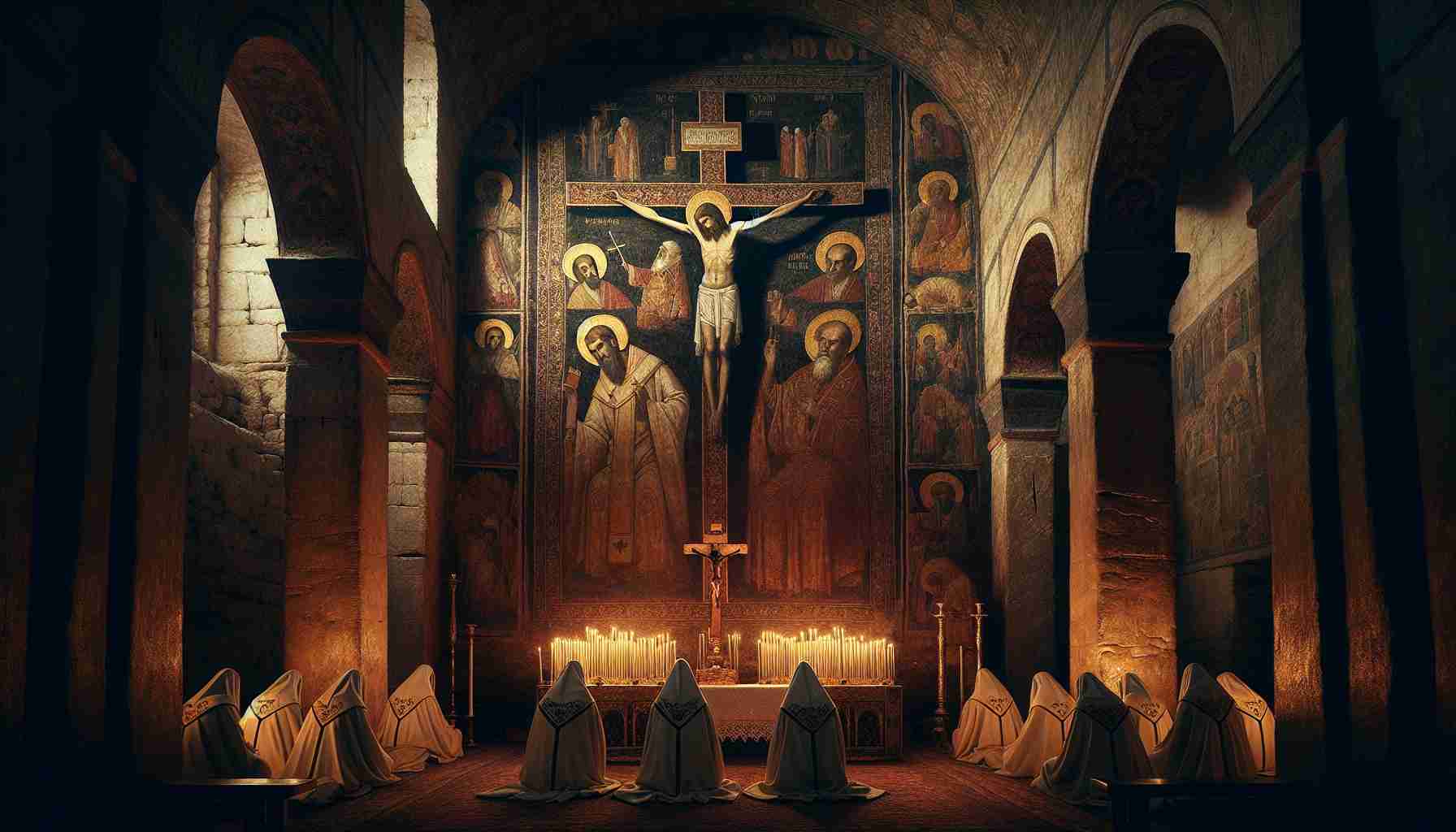

London, May 4, 1535
Rain traced silvery trails down the stone faces of Charterhouse’s high walls, and inside the priory, the scent of damp linen and candle wax mingled with the silence of vigil. Three monks knelt in the Chapter House—John Houghton, Robert Lawrence, and Augustine Webster—wrapped in their habits, backs straight despite what the day promised. Outside, boots had begun to clatter on the cobbles, the sound of iron buckles and shouted commands drifting from the gate. But within, silence held fast.
The prior, John Houghton, pressed his palm lightly over the open Psalter. The leather of his worn glove groaned as he closed his fingers. “Mirentur hostes ut non succumbimus,” he whispered—a psalm verse once sung beneath high arches now stolen by torchlight. Let our enemies marvel that we do not yield.
He lifted his eyes to the others. “All is set. The king’s men wait.”
Brother Robert breathed deeply, his voice low and even. “They wish to steal our silence. The law asks not for loyalty but for the soul's surrender.”
“And they may have our lives, but not that.” John's tone was like the iron hinges groaning open at the gate below—deliberate, fixed. “Like the three in Babylon’s flame.”
Outside, clouds boiled over London, and wind lashed the Thames. In the Tower, the air reeked of wet straw and iron mold. Their chains rusted with each breath. They had refused the Act of Supremacy—refused to name Henry VIII head of the Church of England. Now they waited not for pardon but for the butcher’s rope.
The memory of Scripture clung to them in that suffocating dark. If we are thrown into the blazing furnace, the God we serve is able to deliver us from it... but even if He does not, we will not serve your gods (Daniel 3:17–18). The words rang louder as the trial passed and judgment fell like a sword. Condemned to death at Tyburn. Hanged, drawn, and quartered.
In the flush of morning, a crowd pressed in around the gallows. Cold drizzle soaked their hoods. Traders elbowed for space. A hushed murmur carried among them—not yet admiration, not quite revulsion, but some dawning recognition. The three Carthusians were led in silence, lips moving in prayer. Their white habits stood like luminous sails against the gallows’ black timbers.
John was first. He ascended, and the executioner asked if he would say a final word for the King.
He paused. “I am the King's true subject, but God's first.”
A gasp fluttered through the onlookers just as the noose settled. What followed was no swift death. The cruelty inflicted on them was deliberate, almost theatrical. The crowd, once eager, turned quiet—some wept or turned away. What they witnessed was no mere punishment. It was a desecration.
But their silence endured. Not one call for mercy. Not one curse.
The bodies were torn. Hearts cast into the fire. Heads set on spikes along London Bridge—monuments of tyranny to some, holy relics to others. And yet, news of their deaths spread far beyond the City, even beyond England. Priests whispered their names through candlelight in secret Masses. Mothers told their sons of men who would not kneel. Seeds of resistance were sown in the blood pooling by the Tyburn tree.
Though the Carthusian order in England would be broken, a quiet defiance flickered in hidden chapels and sunken rooms. Faith had not perished with them—it had been steeled.
Over four centuries later, in 1970, Pope Paul VI named John Houghton and his companions among the Forty Martyrs of England and Wales. The small chapel in the Tower where they had prayed still stands—weathered stone bearing witness to a time when piety meant peril.
To enter that place now is to feel silence again, carved into walls once echoing with Latin chants. A silence that speaks not of defeat but triumph. Their story endures not because of the monarchy that condemned them, but because of the God they refused to deny—even in the shadows of death.
The faith that anchored Shadrach, Meshach, and Abednego had, centuries later, breathed through English cloisters. A furnace had burned again in 1535—and again, men had walked into it with heads high, hearts steady, and a hope beyond this world.